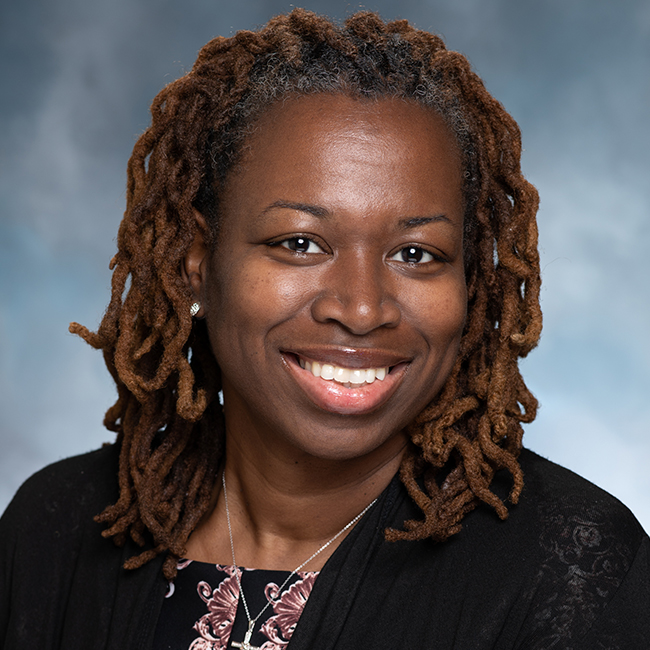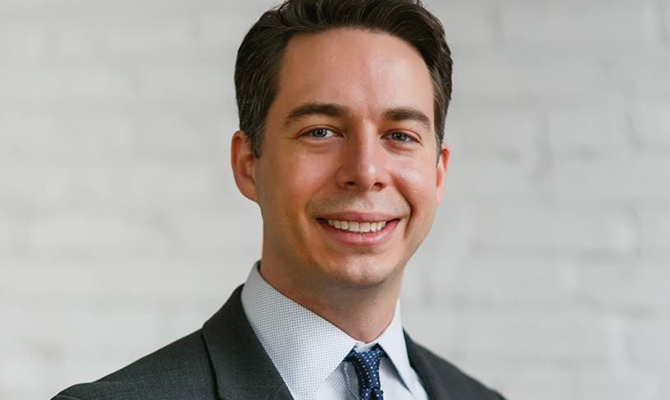
Executive Assistant at Rutgers Biomedical and Health Sciences
Master of Science in Organizational Dynamics, University of Pennsylvania ‘20
Wharton School of Business Post-baccalaureate Certificate Program, University of Pennsylvania ‘05
Bachelor of Business Administration in Accounting, Temple University ‘99
When Felicia LeSure (MSOD ’20) enrolled in the Master of Science in Organizational Dynamics, she was looking for something to shake up her career as administrative staff in higher education. “I was at a point where I was trying to figure out what I could do to move to the next level,” she recalls. “And who knew, the program might open up more doors.” Working full-time and raising a family was a challenge—but everything happens for a reason, she says. To complete her course requirements for the program within the necessary time frame, she enrolled in a course on race and ethnicity in the American workplace with Dr. Kimberly Torres. In that course she found the motivation and mentorship she needed to complete her capstone research, and ultimately to make an impact on her organization. “That course just resonated with me personally,” reflects Felicia, “and Dr. Torres was such an encouragement. She pushed me to do things that I didn’t think I could do.”
For her capstone, “Professional Development For African American Women In Middle Management: Time For A New Curriculum?,” Felicia set out to explore why there were not more Black women in senior leadership roles in her organization. She interviewed her colleagues at Rutgers Biomedical and Health Sciences (RBHS) as well as staff from Ohio State University who participated in a staff leadership program designed for women. Through her research, Felicia found that many Black women in middle management positions were not receiving the professional development they need to advance their careers: while her organization offered leadership and professional development for faculty, there was no analogous program for staff. “I asked participants what they felt were the most valuable components of professional development,” she explains. “Mentoring, leadership skills, and negotiating skills were the top three.” Felicia also looked at successful leadership programs at other institutions, and considered how to adapt them to the specific needs of her organization.
Felicia was in the process of finishing her project when RBHS opened a call for applications for the Inclusion, Diversity, Equity, and Advocacy (IDEA) Innovation Grant , an initiative designed to fund the development of programs that foster an inclusive and welcoming environment for the success of the larger RBHS community. The grant offered a unique opportunity for Felicia to put her research into practice, and improve opportunities for her fellow staff members. She proposed two professional development series: a mentoring program, and a leadership series for women of color. “I think that mentoring will open doors and make connections that people might not necessarily have,” says Felicia. “I wish I could have had a mentor in my earlier career—there are so many things I would have done differently.”
The Staff Mentoring Program piloted in January of this year. Felicia chairs the Mentoring Executive Committee, along with other members of senior RBHS staff, who reviewed applications and paired mentors with mentees. The committee made matches for nearly twice the number of staff applicants as they anticipated, and their group of majority women staff is professionally as well as racially diverse. “We have a huge array of participants, from a secretary all the way up to a vice-chancellor, having one year of service up to 30,” says Felicia. The pairs meet virtually and discuss different topics from month to month; upcoming sessions focus on networking, difficult conversations, and negotiating skills. This structured approach will help Felicia survey her pairs and assess what’s working and what to consider in the program’s future. “The pilot program is being very well received,” says Felicia. “We’re just past the quarter mark, and we're already talking about what the future holds, so I'm very confident that the program will continue to have the support of the senior leadership and provide resources to the staff moving forward. I'm excited about that.”
Now that Felicia is able to open doors for her colleagues, she sees her own professional trajectory in a new light. “I'm glad I ended up taking this route, because I see now that I'm able to impact other people--and that's really ultimately what I want to do,” she says. “I see that I am making a difference, and I feel like I've made the right decision to be where I am.”






